73 Palestinian detainees have died due to torture in Israeli jails since 1967: Prisoners’ group
A Palestinian human rights group says dozens of Palestinian prisoners have lost their lives since 1967 after being exposed to various forms of brutal torture at the hands of their interrogators in Israeli prisons and detention centers.
The Palestinian Prisoners’ Club (PPC) said in a report on Tuesday that Israeli authorities use various methods of torture, both physically and psychologically, against Palestinian prisoners, humiliate their personality and most notably pressure them to sign confessions extracted during their interrogation, the Palestinian Arabic-language Shehab news agency reported.
The PPC then pointed to the case of Palestinian prisoner Arafat Jaradat, who was killed at Megiddo Prison in 2013 only five days after his arrest as a result of being severely tortured.
Israeli urban warfare-trained infantry forces, better known as Nahshon, killed prisoner Ra'ed al-Ja'bari after torturing him physically in 2014.
Palestinian detainee Yassin al-Saradih was also badly tortured in Eichel Prison. He was transferred to an Israeli hospital, where he passed away on May 20, 2018.
In September of that year, 24-year-old Palestinian man Muhammad Zaghloul al-Khatib al-Rimawi died shortly after he was severely beaten by Israeli soldiers at his home in the occupied West Bank village of Beit Rima.
The Palestinian human rights group further highlighted that the concept of torture is not limited to the use of violence against Palestinian prisoners during their arrest and interrogation, but all the appalling procedures that they go through inside detention centers fall within the framework of torture.
The most notorious of these methods include solitary confinement, detention of prisoners in harsh and compelling conditions that do not meet the minimum health standards, torturous transfers as described by prisoners, and the policy of medical negligence.
The PPC said Israeli forces exercise psychological and physical torture against Palestinian detainees from the very first moment of their arrest, by beating them with rifle butts on different parts of their bodies, without any consideration to the injury of some detainees. This practice has resulted in severe injuries, which has caused amputations and diseases that accompanied the prisoners even after their release.
Sleep deprivation through continuous interrogation sessions of up to 20 hours, restricting the detainees during their interrogation, tightening restrictions to prevent blood circulation from reaching their hands, beatings, slapping, kicking, verbal abuse, intentional humiliation, as well as threats to arrest a family member or family house demolition, threats of sexual assault, denial of toilet use, denial of bathing or changing clothes for days or weeks, exposure to extreme cold or heat, constant noise and verbal abuse are among other methods of torture.
There are also other methods of torture known under the so-called military investigation, where the detainee is either forced to lean back over a chair, causing him to suffer immense back pains. An extreme pressure is alternatively used on various parts of the Palestinian prisoner’s body, or they are subjected to violent shaking and strangulation by several means.
More than 7,000 Palestinians are reportedly held at Israeli jails. Hundreds of the inmates have apparently been incarcerated under the practice of administrative detention, a policy under which Palestinian inmates are kept in Israeli detention facilities without trial or charge.
Some Palestinian prisoners have been held in administrative detention for up to eleven years.
Palestinian inmates regularly stage hunger strikes in protest at the administrative detention policy and their harsh prison conditions in Israeli jails.
According to reports, at least 13 Palestinian lawmakers are currently imprisoned in Israeli detention facilities. Nine of them are being held without trial under administrative detention.
‘All wars have rules. All of those rules have been broken’ by Israel
VIDEO | Report flags India’s violation of rights of Rohingya detainees
Turkey's foreign minister meets Syria's de facto leader in Damascus
'Next to impossible' to rescue patients from Gaza's Kamal Adwan Hospital: Director
VIDEO | Vietnam current prosperity
Report blames gasoil exports for shortage at Iranian power plants
VIDEO | Hind Rajab Foundation names Israeli war criminals vacationing after Gaza genocide
VIDEO | Australians rally for Gaza ahead of Christmas festivities


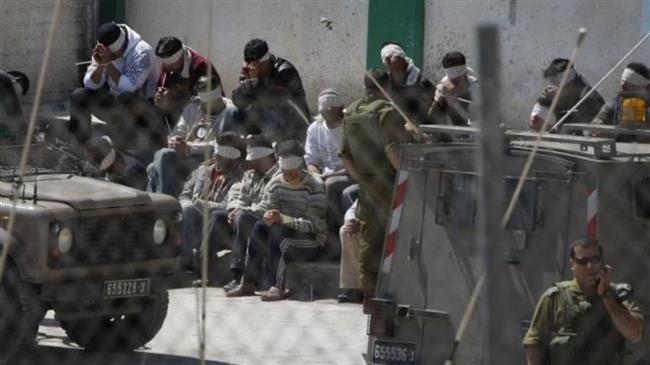



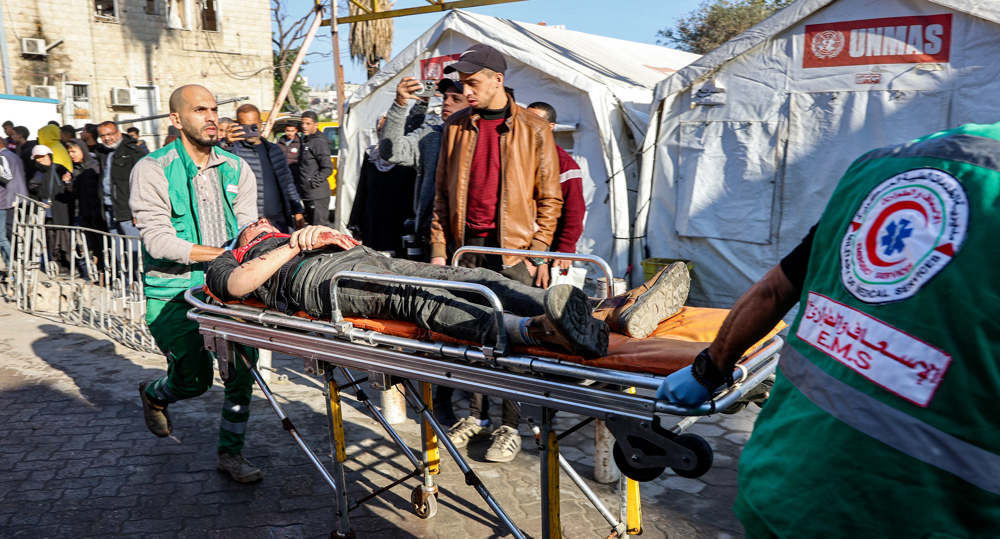

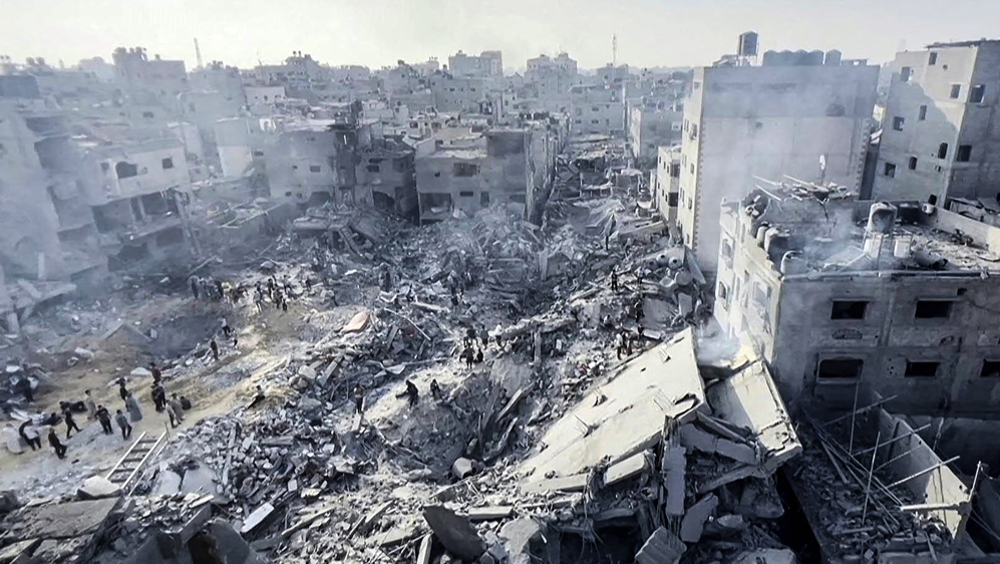




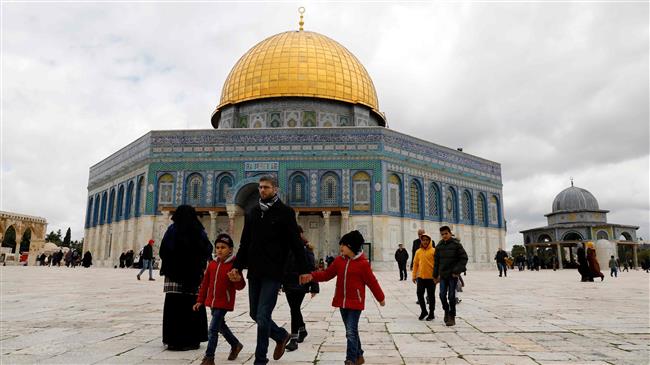


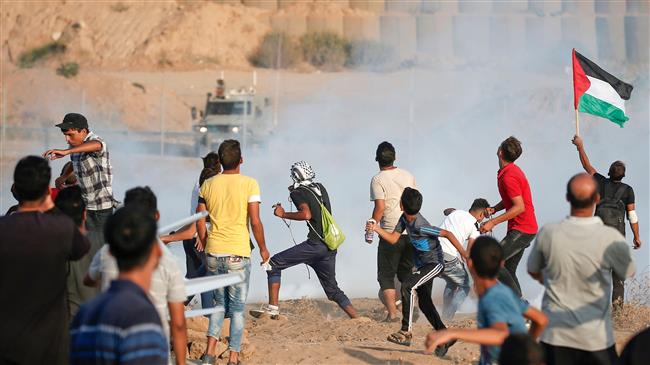
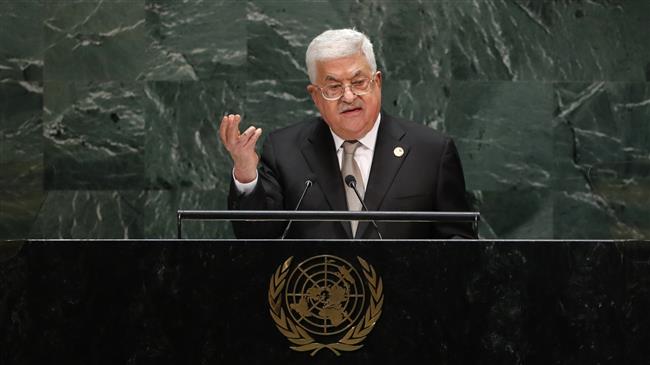
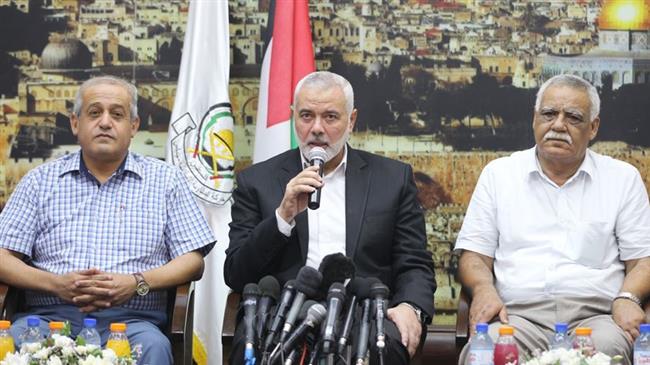


 This makes it easy to access the Press TV website
This makes it easy to access the Press TV website